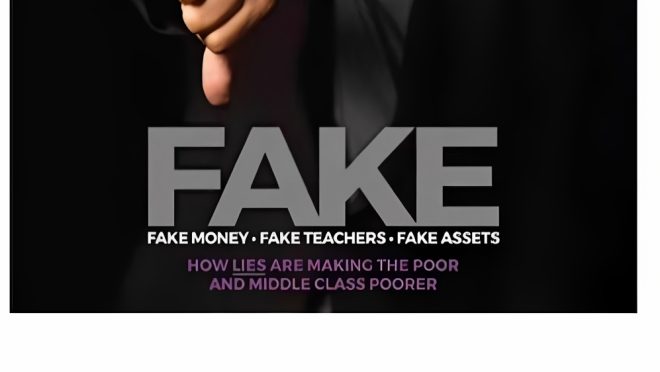Are your Assets, Money, and Teachers Fake?
Are your Assets, Money, and Teachers Fake?

By Abdullah Gifary
As a devoted reader of non-fiction literature, I am constantly seeking books that provide valuable insights to help me navigate the complexities of everyday life, particularly in the realms of business and finance. Recently, I had the pleasure of delving into ‘Fake,’ the latest offering from renowned author Robert T. Kiyosaki, best known for his bestselling title ‘Rich Dad Poor Dad.’ In this thought-provoking book, Kiyosaki delves deep into the concepts of ‘fake’ assets, money, and teachers, presenting ideas that remain incredibly relevant in our modern society.
One of the most striking points I discovered pertained to fake assets. Kiyosaki defines fake assets as liabilities that we mistakenly perceive as assets, such as our homes. It is a common belief for many individuals to consider their homes as their most significant assets and invest a substantial portion of their savings into constructing or purchasing property. However, Kiyosaki challenges this notion by highlighting that a home is, in fact, a liability as it depletes our financial resources rather than generating income. This observation resonates strongly, particularly in Bangladesh, where there is an obsession with homeownership, often at the expense of alternative investments. Regrettably, individuals who exhaust their savings on housing often find themselves in dire financial straits during retirement. Consequently, it is crucial to exercise prudence when allocating our savings and not place the entirety of our financial resources into homeownership.
Kiyosaki also explores the notion of fake money, which refers to paper currency susceptible to inflation and devaluation. Governments possess the authority to print paper money at will, resulting in an oversupply of currency in circulation, subsequently reducing its value. In the context of Bangladesh, the depreciation of the 1000 taka note since its introduction in 2008 serves as an exemplar. To protect ourselves from the devaluation of paper currency, Kiyosaki advocates for holding assets such as gold and silver, which act as a hedge against the insatiable greed, corruption, ignorance, and incompetence of those in power. Unlike paper money, gold and silver retain their value over time, making them reliable stores of wealth.
Lastly, Kiyosaki tackles the concept of fake teachers—individuals who impart impractical financial advice without possessing adequate knowledge or financial literacy themselves. Within our education system, many educators have limited exposure to the business industry and lack financial acumen. Similarly, within society, there are individuals who offer financial guidance with limited expertise. Instead, Kiyosaki urges us to seek guidance from experienced individuals who possess the requisite knowledge and wisdom to steer us on the path to financial success. It is crucial to be discerning about the information we consume, ensuring that we learn from credible and knowledgeable sources.
‘Fake’ by Robert T. Kiyosaki offers a treasure trove of invaluable insights into the realms of fake assets, money, and teachers, provoking a reconsideration of long-held beliefs. By adopting mindful spending habits, diversifying our assets to include gold and silver as a safeguard against currency devaluation, and seeking guidance from experienced mentors, we can protect our financial futures and make informed decisions about our wealth. Kiyosaki’s book serves as a timely reminder to approach our financial journeys with caution and discernment, ultimately empowering us to navigate the complex world of assets, money, and education.



